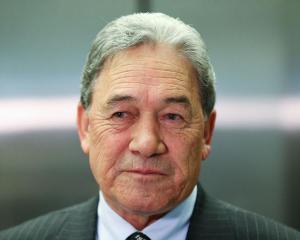
This story discusses mental health and suicide. A list of helplines is available at the bottom of the page.
A health practitioner treating Olivia Podmore has forcefully denied claims he shared confidential medical information within an "old boys" network of Cycling NZ coaches and support staff at an inquest into the death of the elite cyclist.
The practitioner, who worked with Podmore throughout her time in the Cycling NZ programme, told the Coroner's Court in Hamilton on Tuesday he considered there to be "no grey areas" when it comes to sharing an athlete's medical information.
"The way I operated with Olivia, and the way I operate with all athletes, is I am very clear from the outset that the information that we shared ... was private and confidential," he told the court.
"There are no grey areas, it is black and white."
Podmore died in a suspected suicide in August 2021 - the day after the conclusion of the Tokyo Olympics.
During the opening week of the inquest held by Coroner Louella Dunn, the court heard evidence from two witnesses that information Podmore disclosed about her mental health "went further than it should".
The conduct of one health practitioner in particular was called into question by Nicholle Bailey, the ex-wife of the coach at the centre of events that led to the 2018 inquiry into Cycling NZ.
Bailey told the inquest she was troubled by the approach of the health practitioner, who she observed had a close relationship with her ex-husband and formed part of "the boys club" of coaching and support staff.
She described Podmore's openness with the health practitioner as a "double-edged sword".
"In one sense it provided awareness of the difficulties she was facing. However, I'm also aware that this information regularly went further than it should have, resulting in Olivia being ostracised, vilified and bullied by coaches and teammates," Bailey said.
Taking the stand on Tuesday, the health practitioner, who has interim name suppression, told the court he agreed an old boys' network existed in Cycling NZ during the period of 2016-2018, but he denied he was part of it.
"My first experience of cycling was that there was a very closed system within the coaching team. It was not inclusive, not diverse in any way," he said.
"For some people it was an old boys club, for me it was a closed system, it was controlling, maintaining its own equilibrium for the benefit of certain people. Was I part of that? No, not at all.
"I'm very clear I'm not anyone's friend, so my protocol with that is I won't socialise with coaches or athletes. I found that is critical when it comes to being a support for multiple athletes - otherwise you are compromising the relationships immediately."
The practitioner said he was "shocked" to read evidence that he had been alleged to have fed private information about Podmore back to coaching staff. He said the claims appear to have come from a small group of people outside of the "professional sphere" in which he operated.
"To be thought of as someone who is sharing information outside of that space was a complete surprise and shock to me. At no time has that information come from any [other] riders."
The practitioner told the court his approach is to encourage the athlete themselves to share their own information with their coaches.
"The way that we addressed that so that people knew, is that I talked to Olivia about the importance of her sharing information with her coaches, and if a coach was to ask me how Olivia is, I would say 'Please ask Olivia'.
"It gives her agency over the information ... it's entirely up to her who she shares information with."
The practitioner said the only instance in which he could breach confidentiality was if he considered there to be an "imminent risk".
Despite being aware Podmore had disclosed she was experiencing suicidal thoughts to two other health practitioners - once in January 2021, and again in April 2021 - he did not consider her to be high risk in the months leading up to her death.
"In my mind, we had got Olivia through - or she had got herself through - and she was starting to really fly."
He told the court he did recognise that watching on from the sidelines during the Tokyo Olympic Games would be a difficult period for her, and both he and another health practitioner had arranged to have weekly check-ins with her.
Podmore was due to meet with the practitioner on August 6, 2021, but she texted him that day asking to reschedule as she was down in Queenstown on an "epic" snowboarding trip.
Three days later, he received the tragic news the young rider was believed to have taken her own life.
Where to get help:
Need to Talk? Free call or text 1737 any time to speak to a trained counsellor, for any reason.
Lifeline: 0800 543 354 or text HELP to 4357
Suicide Crisis Helpline: 0508 828 865 / 0508 TAUTOKO (24/7). This is a service for people who may be thinking about suicide, or those who are concerned about family or friends.
Depression Helpline: 0800 111 757 (24/7) or text 4202
Samaritans: 0800 726 666 (24/7)
Youthline: 0800 376 633 (24/7) or free text 234 or email talk@youthline.co.nz
What's Up: free counselling for 5 to 19 years old, online chat 11am-10.30pm 7days/week or free phone 0800 WHATSUP / 0800 9428 787 11am-11pm Asian Family Services: 0800 862 342 Monday to Friday 9am to 8pm or text 832 Monday to Friday 9am - 5pm. Languages spoken: Mandarin, Cantonese, Korean, Vietnamese, Thai, Japanese, Hindi, Gujarati, Marathi and English.
Rural Support Trust Helpline: 0800 787 254
Healthline: 0800 611 116
Rainbow Youth: (09) 376 4155
OUTLine: 0800 688 5463 (6pm-9pm)
If it is an emergency and you feel like you or someone else is at risk, call 111.













